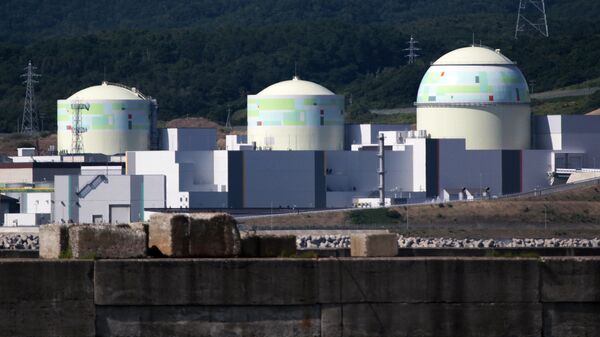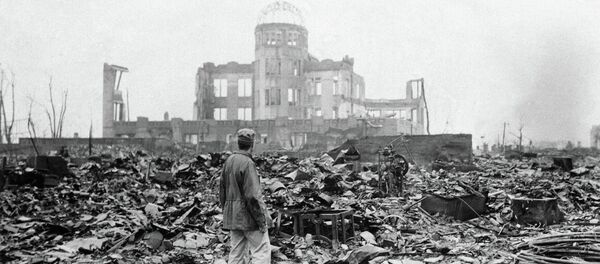In an interview with Sputnik, Director of the Center for Japanese Studies of at the Russian Academy of Sciences Valery Kistanov said that Nagasaki's mayor showed extraordinary courage speaking on the topic in such a critical way.
"We can even say that his statement was very courageous: both in terms of concrete proposals on the achievement of a nuclear-free world, as well as in terms of criticism of the policy of its own government as an extremely controversial one," the expert said.
"The contradiction lies in the fact that the Japanese government and Japanese politicians are positioning Japan as the world's only country to have suffered atomic bombings. On this basis, Japan claims to be the leader in the movement for nuclear disarmament, but at the same time it does not abandon the American ‘nuclear umbrella'. In principle, this contradiction has long been evident, but in recent years this contradictory situation somehow remained in the background. Therefore, the statement of the Nagasaki mayor will definitely attract much attention," Kistanov added.
To resolve this contradiction, the mayor suggested that the Japanese government should adopt new legislation containing "three non-nuclear principles": not to possess, not to produce and not to import nuclear weapons into Japanese territory.
"This is a very reasonable suggestion. But the problem is that it can be accepted and then voluntarily given up again as it was the case with Japanese principles in the field of arms exports," Kistanov said.
"Meanwhile, there is a new Minister of Defense in the new cabinet recently formed by Abe, a woman named Tomomi Inada. She is not a professional soldier, but politician, who at the same time has conservative nationalist beliefs. She said that Japan does not intend to acquire nuclear weapons now, but the situation may change in the future. These statements provoked protests not only in China but also in South Korea. So, Japanese politics is indeed characterized by a certain inconsistency regarding the three non-nuclear principles," the expert stated.
Despite the disastrous consequences of the bombings, the White House still refuses to issue an apology to the people of Japan for what some historians call an act of genocide. Many in the United States believe that, despite the carnage, the use of the weapons was a necessary evil to bring about a quick end to World War II.





